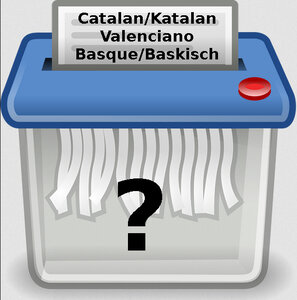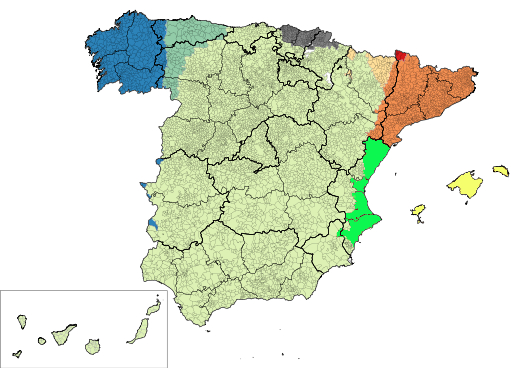Without a regional language?
Parental rights and children's welfare
December 14, 2023
The demand „For the right of parents to choose the language of instruction for their children“ has repeatedly met with resistance. Even among many who otherwise support the right to freedom of choice of language and the fight against language imposition.
These critics are driven by many motives. Concerns range from „Valenciano/Catalan etc. should not die out“ to „Children's welfare may be jeopardized by exercising parental rights if they don't learn Spanish.“ I have tried to address these concerns.
One criticism read: “Valencian is the official language of Valencia (in addition to Castilian). I think it's almost obvious that parents who don't want their children to learn Valencian (unless they are temporary residents who only stay for a few years) are actually harming their children, just as foreign parents in Germany would harm their children if they didn't want them to learn German properly.“
Languages in Germany and Spain
Germany does not have a defined official language like Spain. This is a practical result of the cultural sovereignty of the 16 German states, which communicate with each other in High German. The northern state Schleswig Holstein, for example, counts Danish as an official language in some areas. Wikipedia notes: “There are 46 schools whose language of instruction is Danish (dansk).“ As in Spain, there are other regions in Germany with different official languages. For Brandenburg, Wikipedia notes: “Lower Sorbian, a West Slavic language spoken by around 7,000-10,000 people with their own cultural history ... has the status of a second official language in the local settlement area of the Sorbs/Wends.“
I am not aware of any language conflicts in Germany that even come close to the extent of those in Spain. I am also not aware of children who go to German schools with a different language of instruction leaving the school with insufficient knowledge of German. Before we moved to Spain in the last century, both my sons did their Abitur (Baccalaureate) in French at a Belgian school. They had German as a foreign language there and recognition for a German university was a formality.
While schooling is compulsory in Germany, in Spain, as in many other countries, there is „only“ compulsory education, which in my view does not necessarily include the obligation to educate children in a particular language. In my opinion, Article 26(3) of the UN Declaration on Human Rights: „Parents have a prior right to choose the kind of education that shall be given to their children.“ is the guiding principle here.
For me, this also includes the right to determine the language of instruction. I would therefore like to examine the question of whether parental rights can jeopardize the child's welfare.
Parental rights and child's welfare
There are no statistics on how many parents still decide that a simple education is enough for girls because they will marry later and have children. Nevertheless, I bet there are still too many parents like that in Spain as well as in Germany. This is an example that could show that parental rights to education can have a decisive influence on a child's well-being. The question remains:
What is in the child's best interests?
I would like to refer to the example of the Amish people in the USA. This is a religious community that essentially rejects modern technology. They do not use electricity, wear old-fashioned clothing and mainly do hard, physical labor. Amish children are generally much healthier and fitter than other American children. Certainly they lack the education of European children with Abitur, but are they unhappier? Is their welfare at risk? I will neither idealize nor condemn this way of life, but I will certainly accept and tolerate it.
Now I think of a child in Catalonia, the Basque Country or Valencia who is only taught in the respective regional language and whose performance in Spanish is only determined by what he learns on the street or at sports etc., because the parents have decided that he does not need to be taught Spanish. Later career choices could be limited, but is that a permissible risk to the child's welfare? Who is to say that only schooling in Spanish (or German, English etc.) will lead to happiness? I know many people who are perfectly happy with „simple“ jobs such as shepherd or cook. Denia proudly announces “Michelin stars in Dénia: the 3 best restaurants according to the Michelin Guide 2024“ and does not disclose whether the chefs speak perfect Spanish or Valenciano or have a high school diploma. I am aware of cases of highly educated people who have killed themselves out of weariness with life or have criminally neglected the welfare of their children. It's almost like money, being multilingual or having a high school diploma doesn't make you happy, but it doesn't necessarily do any harm either.
I don't see a child's welfare at risk if a child is only educated in a regional Spanish language. I see more of a risk to a child's welfare if I leave educational decisions to politicians. Now there is tax money spent in Germany for queer propaganda in schools and kindergartens and I have also heard of drag queens giving talks to Spanish children.
Language and rights
Even among those who reject language imposition, there is a fear that the free choice of the language of instruction without taking the regional language into account could jeopardize its existence. Sometimes they ask me: doesn't Valenciano have any rights?
The answer is: NO! Humans have rights. Languages do not.
Language is a complex system of communication. A tool that we humans have developed to the highest level. A tool with which we can also express and trigger feelings. Just like music. All languages change in the course of history, but they do not live, even if Latin is understandably described as a dead language.
The continued existence of a culture, a music and a language is determined by those who use it and wish to develop it further. It is understandable and worth supporting the rights of linguistic minorities to their culture and language in Spain. This includes parents having the right to have their children taught in their regional language, even 100%. However, this also applies to Spanish.
Exactly: Free choice of the language of instruction! That is the right of the parents, not the language. Equal rights for all, but neither equal nor unequal imposition on all!
| | | | Click here to subscribe or cancel your subscription |
Myths and deceptions of Catalan nationalism

Here you'll find the translation
Languages in Spain
Spanish, Basque, Catalan, Mallorquin, Valenciano etc.
The strategy of recatalanization
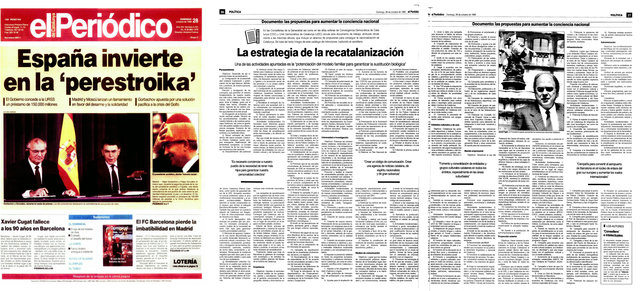 1980 the Spanish journal "El Periodico" published a secret document about the strategy of the Catalan government. It shows in a frightening way the actual spiritual world of the separatist leaders.
1980 the Spanish journal "El Periodico" published a secret document about the strategy of the Catalan government. It shows in a frightening way the actual spiritual world of the separatist leaders.Now it is available in english translation.
Pancatalanism
the separatist's imperial claim
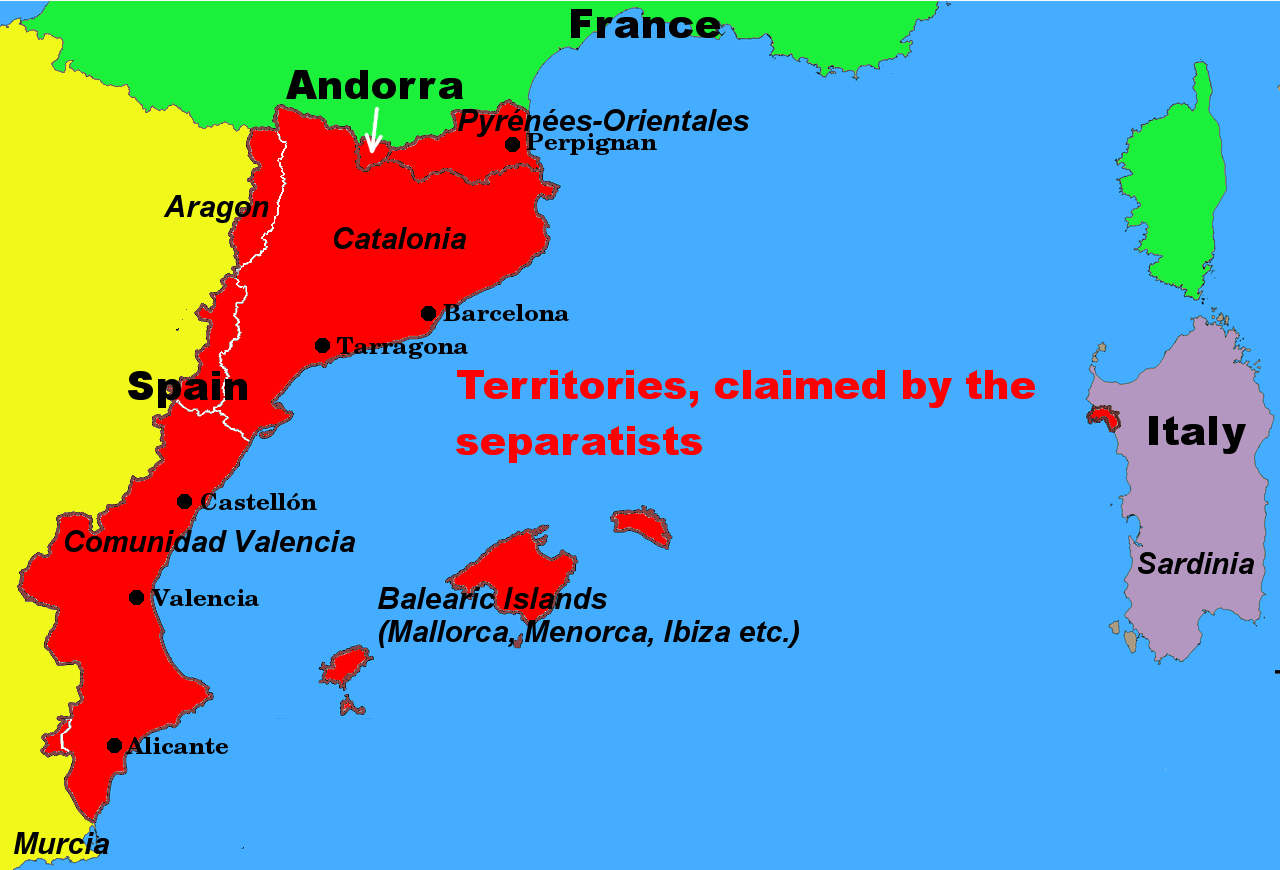 The Catalan government exports the conflict into communities with Catalan population, supporting all efforts of the separatists including financial means to destroy Spain.
The Catalan government exports the conflict into communities with Catalan population, supporting all efforts of the separatists including financial means to destroy Spain. An important tool is the establishment of a language dictatorship that is not afraid to use the same means as Franco.
Separatist indoctrination

Click here to read the study
Language imposition and democracy
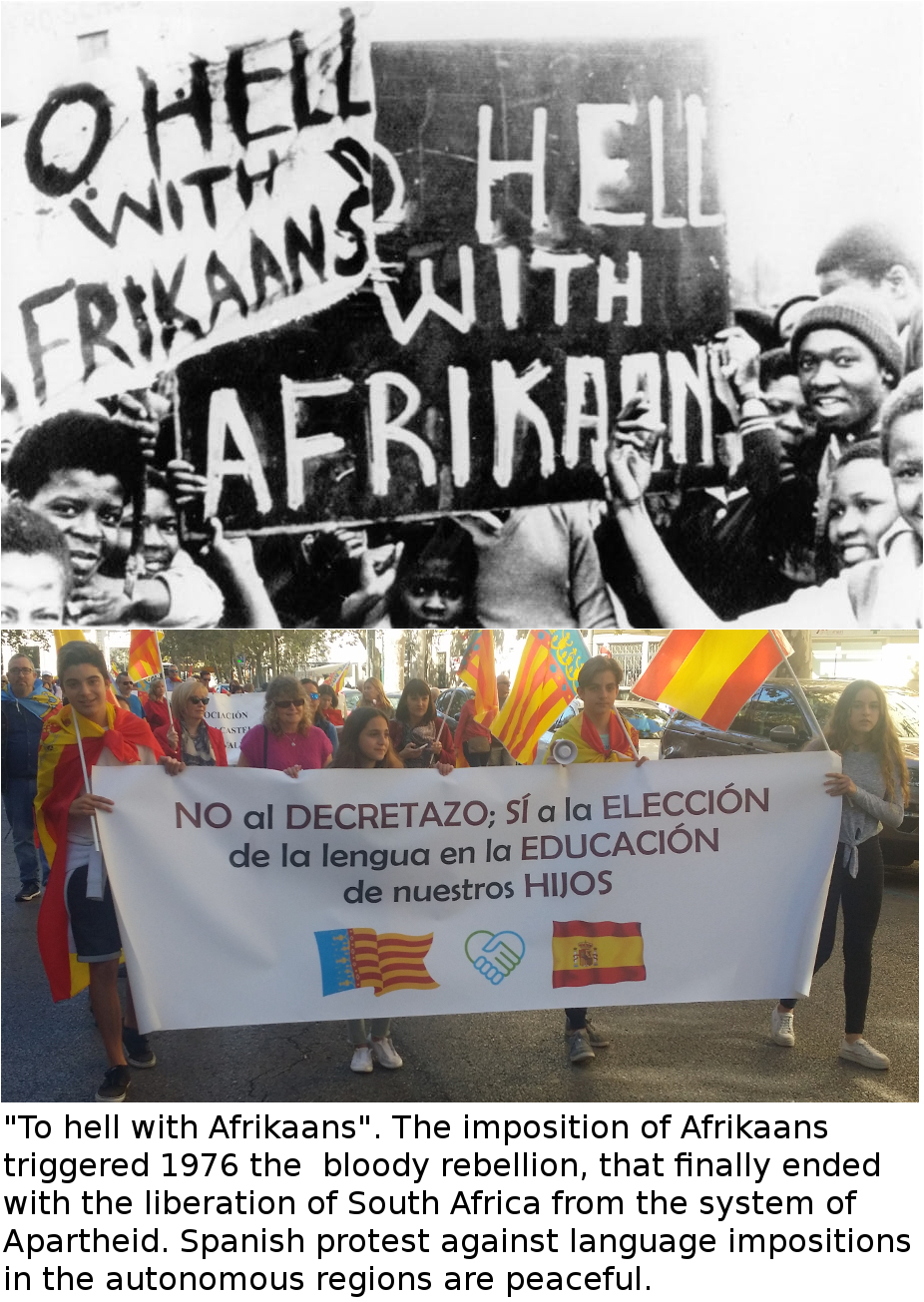
An essay in 6 parts on the potentially violent effect of language imposition containing contributions from South Africa, Catalonia, Ukraine and France.
go to part 1 SticSti
Publications
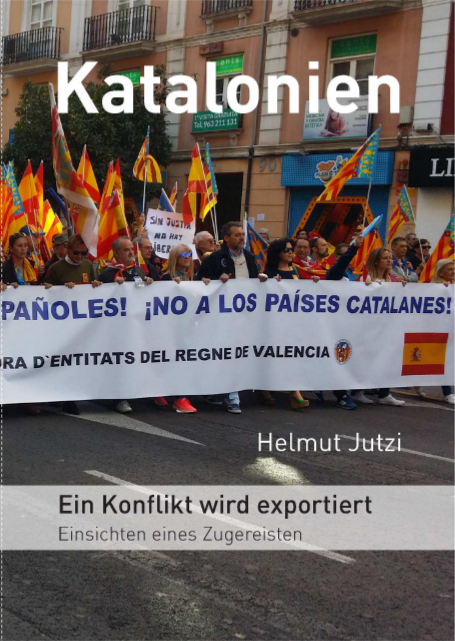 The title says: "Catalonia, a conflict is exported. Insights of a migrant"
The title says: "Catalonia, a conflict is exported. Insights of a migrant"Sorry, up to now, this book is only available in German. However, drop us a line, if you are interested to learn more Contact.
